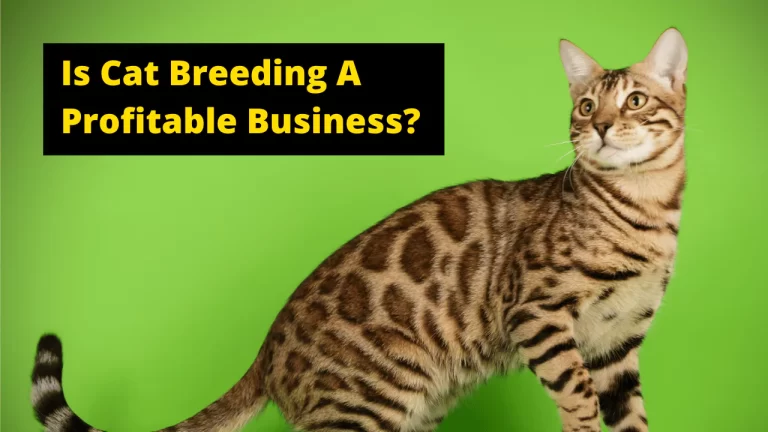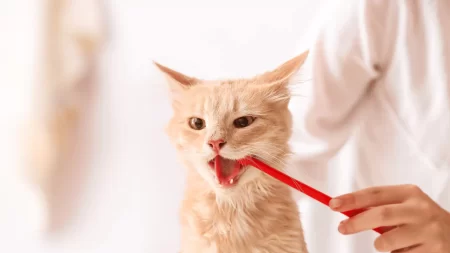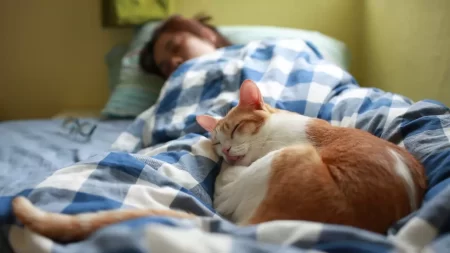Yes, cat breeding can be a profitable business for those who are dedicated, knowledgeable, and committed to providing high-quality care for their cats. However, it is important to note that cat breeding is not a get-rich-quick scheme. It is a demanding and time-consuming endeavor that requires a significant investment of time, money, and resources.
Is Cat Breeding a Hobby or a Business?
The first thing to consider is whether cat breeding is a hobby or a business in the eyes of the law and the tax authorities. According to the IRS, a hobby is any activity that a person pursues because they enjoy it and have no intention of making a profit, while a business is an activity that is carried out with the intent of making a profit. The distinction is important because hobbies and businesses are treated differently when it comes to taxes and deductions.
IRS Guidelines on Hobby Income
The IRS has a list of nine factors to help determine whether an activity is a hobby or a business, such as:
- Are the activities businesslike and do the taxpayer keep reliable books and records?
- Whether the taxpayer’s time and effort indicate a profit motive.
- Whether the taxpayer relies on the activity for revenue.
- Whether any losses are beyond the taxpayer’s control or normal for their fledgling business.
- Whether the taxpayer alters operations to boost profits.
- Whether the taxpayer and advisors have the business understanding to succeed.
- If the taxpayer made money in similar actions before.
- How much profit does the activity make in some years?
- Whether the taxpayer will profit from the activity’s asset appreciation.
All factors, facts, and circumstances with respect to the activity must be considered, and no one factor is more important than another. If the IRS determines that an activity is a hobby, then the expenses related to the activity cannot be used to reduce other income for tax purposes. Hobby income must be reported on Schedule 1, Form 1040, line 8. On the other hand, if the IRS determines that an activity is a business, then the income and expenses must be reported on Schedule C, Form 1040, and the taxpayer may be able to deduct the ordinary and necessary expenses of running the business.
Taboo Surrounding Cat Breeding as a Business
Some cat breeders may be reluctant to admit that they are running a business, because of the stigma or taboo associated with breeding cats for profit. There is a common misconception that cat breeders are greedy, irresponsible, or unethical and that they contribute to the overpopulation and suffering of cats. However, this is not true for most reputable and ethical cat breeders, who are passionate about their chosen breed, care for the health and welfare of their cats and kittens, and follow the standards and codes of conduct of their breed associations and registries. Cat breeders who breed cats as a hobby may also face criticism from some people who believe that breeding cats is unnecessary or selfish and that there are already too many cats in shelters and rescues that need homes.
However, cat breeding can also be seen as a positive and beneficial activity, as it preserves the genetic diversity and heritage of different cat breeds, improves the quality and health of the breed, and provides joy and companionship to many cat lovers. Cat breeding can also be a way of expressing one’s creativity, artistry, and love for cats, as well as a source of personal satisfaction and achievement. Cat breeders who breed cats as a business may also have a positive impact on the economy, as they generate income, pay taxes, and create employment opportunities for themselves and others.
Understanding Cat Breeding
Before embarking on a cat breeding business, it is crucial to understand the basics of feline reproduction, the risks and complications involved, and the emotional and financial costs.
Basics of Feline Reproduction
Between the ages of four and six months, most cats reach sexual maturity. Cats typically have a gestation period of about 63 days. For the first several weeks after birth, kittens will rely on their mothers for nursing.
Risks and Complications
Cat breeding can be a risky endeavor. There are always risks associated with pregnancy and childbirth, both for the mother cat and the kittens. Some potential complications include:
- Dystocia (difficult birth)
- Eclampsia (a serious condition that can cause seizures in pregnant cats)
- Fading kitten syndrome (a condition in which kittens die shortly after birth)
Emotional and Financial Costs
Cat breeding is not just about breeding cats and selling kittens. It is also about providing high-quality care for the cats, which includes:
- Providing nutritious food and clean water
- Offering a safe and comfortable living environment
- Scheduling regular veterinary checkups
- Socializing kittens to prepare them for life in their new homes
The Cat Breeding Process
Cat breeding is not a simple or easy task, as it involves a lot of planning, preparation, and care. Cat breeders have to follow a series of steps to ensure the success and safety of the breeding process, from the selection of the breeding partners to the placement of the kittens.
Preparation and Breeding
Cat breeding begins with choosing the father and dam for the kitten litter. Breeders must choose cats based on their physical and genetic traits, health, temperament, pedigree, and ancestry to meet their breeding goals and requirements. Cat breeders must also guarantee that cats are healthy, vaccinated, tested, and free of diseases that could impair breeding. Cat breeders may need authorization from breed groups, registries, and cat owners if the cats are not theirs.
The next step is cat mating, either spontaneously or artificially. In natural mating, cats mate repeatedly when the female is in heat until she ovulates and gets pregnant. A veterinarian or breeder injects male semen into the female’s uterus for artificial mating. When cats are incompatible, far apart, or have reproduction concerns, artificial mating may be favored.
Caring for Pregnant Cats and Newborn Kittens
Step three is to care for pregnant cats and newborn kittens and give them the finest environment and nutrients. Pregnant cats need healthy food, fresh water, a clean and comfy nesting space, and regular vet visits. Since pregnant cats may become needy and clingy, they need lots of love and attention. Cat breeders must watch for signals of labor, such as a dip in temperature, hunger, or behavior, and be ready to help birth. Cat breeders must have a veterinarian’s number on hand in case of dystocia, stillbirth, or neonatal fatality.
A snug nest, continual milk from their mother or a bottle, and gentle stimulation to urinate and defecate are essential for newborn kittens. Newborn kittens are susceptible to diseases, injuries, and predators and need close attention. Breeders must weigh and measure kittens daily and look for dehydration, diarrhea, and fading kitten syndrome. To help kittens develop confidence and personality, cat breeders must socialize and handle them early on and expose them to diverse sights, sounds, and smells.
Health and Vaccinations
The fourth step is to keep cats and kittens healthy and prevent or treat any diseases. Cat breeders must vaccinate cats and kittens for common diseases like FVRCP, FeLV, and rabies. Cat breeders must frequently deworm cats and kittens and inspect for fleas, ticks, and mites. Kittens must be spayed or neutered before leaving the breeder unless they are sold to other breeders or show exhibitors. Kitten and cat breeders must submit health certificates, vaccinations, and medical records to new owners.
Finding Homes for Kittens
The last stage is to find loving homes for the kittens and make sure they’re settled. Cat breeders must promote their kittens’ breed, color, pattern, gender, and personality. Cat breeders must interview prospective purchasers about their lifestyle, experience, expectations, and preferences. Cat breeders must inform purchasers on the breed, care, and responsibilities of cat ownership and answer any queries. Cat breeders must give kitten buyers the registration documents, pedigree, contract, warranty, and selling terms. Kitten breeders must arrange delivery or pickup and follow up with buyers to ensure the kittens are adequately cared for.
Is Cat Breeding Profitable?
Cat breeding can be a profitable business, but it is not a get-rich-quick scheme. It requires a significant investment of time, money, and resources, and there is no guarantee of success. However, for those who are dedicated and committed to providing high-quality care for their cats, cat breeding can be a rewarding and profitable venture.
How Much Do Cat Breeders Make?
The average salary for cat breeders in the United States is $39,380 per year, according to Comparably. The salary range for cat breeders can vary widely, from $20,430 to $75,210 per year. The top 80% of cat breeders make $75,210 or more per year, while the bottom 20% make $20,430 or less per year.
Can You Make a Living as a Cat Breeder?
Yes, cat breeding may be profitable. It’s not a get-rich-quick scheme. It involves tremendous time, money, and resources. Several cat breeders lose money. Those who succeed can make a good living breeding cats.
Factors that Affect Profitability
There are a number of factors that can affect the profitability of cat breeding, including:
- The breed of cat: Certain breeds of cats are more popular than others and can therefore command higher prices.
- The quality of care provided: The better the care you provide for your cats, the healthier and more desirable they will be to potential buyers.
- The demand for kittens: The demand for kittens can fluctuate depending on a number of factors, such as the economy and the popularity of certain breeds.
Pros and Cons of Breeding Cats as a Business
Pros:
- Maybe a fun and profitable business
- Chance to make a lot of money
- Can bring you happiness and pleasure
- Possibly a way to meet other cat lovers
Cons:
- Needs a lot of time, money, and resources to be put in
- Can be hard on your body and your emotions
- You could lose money at any time.
- It can be hard to find homes for kittens.
- Can be difficult and take a lot of time
Overall, cat breeding can be a profitable business, but it is important to be aware of the risks and challenges involved. If you are considering becoming a cat breeder, it is important to do your research and be prepared to work hard.







